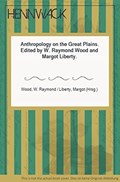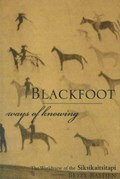Narrow Results By
- Adese, Jennifer 1
- Bastien, Betty 1
- Blondin, Walter; Blondin, George; Goose, Leanne; Mountain, Antoine; Stewart, Sarah; Yakeleya, Raymond; and Dene Elders; foreword by Blondin, Walter. 1
- Carlson-Manathara, Elizabeth and Rowe, Gladys 1
- Christie, Gordon 1
- Kovach, Margaret 1
- Manuel, Vera 1
- McKegney, Sam 1
- McLean, John 1
- Molyneaux, Brian L. 1
- Wakim Dennis, Yvonne; Hirschfelder, Arlene; and Rothenberger Flynn, Shannon 1
- Wall Kimmerer, Robin 1
Aboriginal TM : the cultural and economic politics of recognition
https://archives.whyte.org/en/permalink/catalogue25713
- Medium
- Library - Book (including soft-cover and pamphlets)
- Published Date
- 2022
- Author
- Adese, Jennifer
- Publisher
- Winnipeg, Manitoba, Canada : University of Manitoba Press
- Call Number
- 07.2 A3a
- Author
- Adese, Jennifer
- Publisher
- Winnipeg, Manitoba, Canada : University of Manitoba Press
- Published Date
- 2022
- Physical Description
- x, 260 pages : illustrations ; 24 cm
- Subjects
- Indigenous
- Indigenous Culture
- Indigenous People
- Indigenous Traditions
- Tourism
- Language
- Politics
- Abstract
- In Aboriginal™, Jennifer Adese explores the origins, meaning, and usage of the term "Aboriginal" and its displacement by the word "Indigenous." In the Constitution Act, 1982, the term's express purpose was to speak to the "aboriginal rights" acknowledged in Section 35(1). Yet in the wake of the Constitution's passage, Aboriginal, in its capitalized form, became far more closely aligned with Section 35(2)'s interpretation of which specific groups held those rights, and was increasingly used to describe and categorize people. More than simple legal and political vernacular, the term Aboriginal (capitalized or not) has had real-world consequences for the people it defined. Aboriginal™ argues the term was a tool used to advance Canada's cultural and economic assimilatory agenda throughout the 1980s until the mid-2010s. Moreover, Adese illuminates how the word engenders a kind of "Aboriginalized multicultural" brand easily reduced to and exported as a nation brand, economic brand, and place brand--at odds with the diversity and complexity of Indigenous peoples and communities. In her multi-disciplinary research, Adese examines the discursive spaces and concrete sites where Aboriginality features prominently: the Constitution Act, 1982; the 2010 Vancouver Olympics; the "Aboriginal tourism industry"; and the Vancouver International Airport. Reflecting on the term's abrupt exit from public discourse and the recent turn toward Indigenous, Indigeneity, and Indigenization, Aboriginal™ offers insight into Indigenous-Canada relations, reconciliation efforts, and current discussions of Indigenous identity, authenticity, and agency. -- Provided by publisher.
- Contents
- Introduction -- 1. Aboriginal, aboriginality, aboriginalism, aboriginalization: what's in a word? -- Aboriginalized multiculturalism tm: Canada's olympic national brand -- Selling Aboriginal experiences and authenticity: Canadian and Aboriginal tourism -- Marketing aboriginality and the branding of place: the case of Vancouver international airport -- Conclusion: thoughts on the end of aboriginalization and the turn to indigenization.
- Notes
- Title appears with the trademark symbol after the word "Aboriginal".
- ISBN
- 9781772840056
- Accession Number
- P2023.09
- Call Number
- 07.2 A3a
- Collection
- Archives Library
This material is presented as originally created; it may contain outdated cultural descriptions and
potentially offensive content.
Read more.
Anthropology on the Great Plains
https://archives.whyte.org/en/permalink/catalogue26190
- Medium
- Library - Book (including soft-cover and pamphlets)
- Published Date
- 1980
- Publisher
- Lincoln : University of Nebraska Press
- Call Number
- 07.2 W86a
- Responsibility
- Edited by W. Raymond Wood and Margot Liberty
- Publisher
- Lincoln : University of Nebraska Press
- Published Date
- 1980
- Physical Description
- vii, 306 pages : illustrations ; 27 cm
- Subjects
- Indigenous
- Indigenous Culture
- Indigenous Customs
- Indigenous People
- Indigenous Traditions
- Turtle Island
- History
- Abstract
- Native American tribes living on the Great Plains have long attracted the attention of Euro-American scholars, inspiring over the years a vast quantity of research. The contributors to this volume discuss and evaluate all the major works of scholarship devoted to the culture of Plains Indians, from the arrival of these peoples on the North American grasslands thousands of years ago, through their subsequent Village and High Plains lifeways, to their present-day adaption to reservation and urban life. Toghether, the twenty-two authors undertake a comprehensive survey of the state of anthropology on the Plains: what it has been, what it is now, and what it may offer theory and method in the future. -- From interior dustjacket
- Contents
- The Plains setting / B. Miles Gilbert -- The influence of Plains ethnography on the development of anthropological theory / E. Adamson Hoebel -- The Plains culture area concept / Richard Scaglion -- Prehistoric studies on the Plains / Alfred E. Johnson and W. Raymond Wood -- An overview of Great Plains physical anthropology / David V. Hughey -- Studies in Plains linguistics : a review / Robert C. Hollow and Douglas R. Parks -- Plains trade in prehistoric and protohistoric intertribal relations / W. Raymond Wood -- The ethnohistorical approach in Plains area studies / Mildred Mott Wedel and Raymond J. DeMallie -- Plains economic analysis : the Marxist complement / Alan M. Klein -- Morgan's problem : the influence of Plains ethnography on the ethnology of kinship / John H. Moore -- Social control on the Plains / Garrick Bailey -- The Sun Dance / Margot Liberty -- The Ghost Dance / Omer C. Stewart -- The Native American church / Omer C. Stewart -- Plains Indian art / Mary Jane Schneider -- Plains Indian music and dance / William K. Powers -- Psychological anthropology / Margot Liberty and Robert Morais --The formal education of Plains Indians / Janet Goldenstein Ahler -- Plains Indian women : an assessment / Katherine M. Weist -- Research in health and healing in the Plains / Luis S. Kemnitzer -- Peoples of the Plains / compiled by Douglas R. Parks, Margot Liberty, and Andrea Ferenci.
- ISBN
- 9780803247086
- Accession Number
- 2022.17
- Call Number
- 07.2 W86a
- Collection
- Archives Library
This material is presented as originally created; it may contain outdated cultural descriptions and
potentially offensive content.
Read more.
The arts of Indigenous health and well-being
https://archives.whyte.org/en/permalink/catalogue25714
- Medium
- Library - Book (including soft-cover and pamphlets)
- Published Date
- 2021
- Publisher
- Winnipeg, Manitoba, Canada : University of Manitoba Press
- Call Number
- 07.2 S9t
- Responsibility
- Edited by Nancy Van Styvendale, J. D. McDougall, Robert Henry, and Robert Alexander Innes
- Publisher
- Winnipeg, Manitoba, Canada : University of Manitoba Press
- Published Date
- 2021
- Physical Description
- 272 pages : illustrations ; 23 cm
- Subjects
- Indigenous
- Indigenous Culture
- Indigenous Traditions
- Indigenous Peoples
- Health
- Oral History
- Medicine
- Abstract
- Drawing attention to the ways in which creative practices are essential to the health, well-being, and healing of Indigenous peoples, The Arts of Indigenous Health and Well-Being addresses the effects of artistic endeavour on the "good life", or mino-pimatisiwin in Cree, which can be described as the balanced interconnection of physical, emotional, spiritual, and mental well-being. In this interdisciplinary collection, Indigenous knowledges inform an approach to health as a wider set of relations that are central to well-being, wherein artistic expression furthers cultural continuity and resilience, community connection, and kinship to push back against forces of fracture and disruption imposed by colonialism. The need for healing--not only individuals but health systems and practices--is clear, especially as the trauma of colonialism is continually revealed and perpetuated within health systems. The field of Indigenous health has recently begun to recognize the fundamental connection between creative expression and well-being. This book brings together scholarship by humanities scholars, social scientists, artists, and those holding experiential knowledge from across Turtle Island to add urgently needed perspectives to this conversation. Contributors embrace a diverse range of research methods, including community-engaged scholarship with Indigenous youth, artists, Elders, and language keepers. The Arts of Indigenous Health and Well-Being demonstrates the healing possibilities of Indigenous works of art, literature, film, and music from a diversity of Indigenous peoples and arts traditions. This book will resonate with health practitioners, community members, and any who recognize the power of art as a window, an entryway to access a healthy and good life. -- Provided by publisher.
- Contents
- "Art for life's sake": approaches to indigenous arts, health, and well-being / Nancy Van Styvendale, J.D. McDougall, Robert Henry, and Robert Alexander Innes -- What this pouch holds / Gail MacKay -- Baskets, birchbark scrolls, and maps of land: indigenous making practices as oral historiography / Andrea Riley-Mukavetz -- For Kaydence and her cousins: health and happiness in cultural legacies and contemporary contexts / Adesola Akinleye -- Stories and staying power: artmaking as (re)source of cultural resilience and well-being for Panniqtumiut / Alena Rosen -- Healthy connections: facilitator's perceptions of programming linking arts and wellness with indigenous youth / Mamata Pandey, Nuno F. Ribeiro, Warren Linds, Linda M. Goulet, Jo-Ann Episkenew, and Karen Schmidt -- The doubleness of sound in Canada's Indian residential schools / Beverley Diamond -- Kissed by lightning: mediating Haudenosaunee traditional teachings through film / Nicholle Dragone -- Minobimaadiziwinke (creating a good life): native bodies healing / Petra Kuppers and Margaret Noodin -- Body counts: war, pesticides, and queer spirituality in Cherri´e Moraga's Heroes and saints / Desiree Hellegers -- The language of soul and ceremony / Louise Halfe -- Sa^kihiwa^win: land's overflow into the space-tial "otherwise" / Karyn Recollet.
- ISBN
- 9780887559396
- Accession Number
- P2023.09
- Call Number
- 07.2 S9t
- Collection
- Archives Library
This material is presented as originally created; it may contain outdated cultural descriptions and
potentially offensive content.
Read more.
Beyond the orange shirt story
https://archives.whyte.org/en/permalink/catalogue25692
- Medium
- Library - Book (including soft-cover and pamphlets)
- Published Date
- 2021
- Author
- Webstad, Phyllis
- Publisher
- Medicine Wheel Publishing
- Call Number
- 07.2 W39b
- Author
- Webstad, Phyllis
- Publisher
- Medicine Wheel Publishing
- Published Date
- 2021
- Physical Description
- 102 pages
- Abstract
- Beyond the Orange Shirt Story is a unique collection of truths that articulate the lives and experiences of some Residential School Survivors and their families. Compiled by Phyllis Webstad, Residential School Survivor and Founder of the Orange Shirt Day movement, this book will give readers an up-close look at what life was like for many Survivors -- before, during, and after their Residential School experiences. These personal Survivor accounts, relayed in a number of one on one interviews, are authentically shared in their own voices.-- Provided by Publisher
- Contents
- 1. Phyllis Webstad -- 2. Suzanne Edward Jim (Phyllis Webstad's great-grandmother) -- 3. Helena (Lena) Jack (Nee Billy) (Phyllis Webstad's grandmother) -- 4. Rose Wilson Nee Jack (Phyllis Webstad's mother) -- 5. Theresa Jack (Phyllis Webstad's auntie) -- 6. Hazel Agness Jack (Phyllis Webstad's auntie) -- 7. Jeremy Boston (Phyllis Webstad's son) -- 8. Mason and Blake Murphy (Phyllis Webstad's grandchildren) -- 9. Lynn Eberts (Phyllis Webstad's elementary school teacher) -- 10. Photos of Phyllis Webstad's family -- 11. St. Joseph's Mission Residential School.
- ISBN
- 9781989122754
- Accession Number
- P2022.14
- Call Number
- 07.2 W39b
- Collection
- Archives Library
This material is presented as originally created; it may contain outdated cultural descriptions and
potentially offensive content.
Read more.
Blackfoot ways of knowing : the worldview of the Siksikaitsitapi
https://archives.whyte.org/en/permalink/catalogue26211
- Medium
- Library - Book (including soft-cover and pamphlets)
- Published Date
- 2023
- Author
- Bastien, Betty
- Publisher
- Calgary : University of Calgary Press
- Edition
- 9th printing
- Call Number
- 07.2 B29b
- Author
- Bastien, Betty
- Responsibility
- Ju¨rgen W. Kremer, editor ; Duane Mistaken Chief, language consultant.
- Edition
- 9th printing
- Publisher
- Calgary : University of Calgary Press
- Published Date
- 2023
- Physical Description
- xx, 235 pages : illustrations, portraits ; 23 cm
- Subjects
- Blackfoot
- Siksikaitsitapi
- Indigenous
- Indigenous Culture
- Indigenous Customs
- Indigenous People
- Indigenous Traditions
- Indigenous Language
- Abstract
- The worldview of the Siksikaitsitapi is a journey into the heart and soul of Blackfoot culture. In sharing her personal story of coming home to reclaim her identity within that culture, Betty Bastien offers us a gateway into traditional Blackfoot ways of understanding and experiencing the world. As a scholar and researcher, Bastien is also able to place Blackfoot tradition within the context of knowledge building among indigenous peoples generally, and within an historical context of precarious survival amid colonial displacement and cultural genocide. -- From back cover
- Contents
- Context -- Introduction -- Innahkootaitsinnika'topi -- History of the Blackfoot-speaking tribes -- Introductory remarks -- Iitotasimahpi Iimitaiks -- The era of the dog or the time of the ancestors (Pre-eighteenth century) -- Ao'ta'sao'si Ponokaomita -- the era of the horse (eighteeneth century to 1880) -- Ao'maopao'si -- from when we settled in one place (1880) to today -- Cultural destruction -- policies of ordinary genocide -- Tribal protocol and affirmative inquiry -- Niinohkanistssksinipi -- Speaking personally -- Traditional knowledge in academe -- Cultural affirmation -- Protocol of affirmative inquiry -- Affirmation of indigenous knowledge -- Kakyosin -- traditional knowledge -- Kiitomohpiipotoko -- ontological responsibilities -- Siksikaitsitapi ways of knowing -- epistemology -- Knowledge is coming to know Ihtsipaitapiiyo'pa -- Kakyosin/Mokaksin -- Indigenous learning -- Niisi'powahsinni-language -- Aipommotsspistsi -- transfers -- Kaaahsinnooniksi -- grandparents -- Conclusion: renewal of ancestral responsibilities as antidote to genocide -- Deconstructing the colonized mind -- Eurocentred and Niitsitapi identity -- Reflections and implications.
- ISBN
- 9781552381090
- Accession Number
- P2023.25
- Call Number
- 07.2 B29b
- Collection
- Archives Library
This material is presented as originally created; it may contain outdated cultural descriptions and
potentially offensive content.
Read more.
Braiding sweetgrass for young adults : indigenous wisdom, scientific knowledge, and the teachings of plants
https://archives.whyte.org/en/permalink/catalogue25691
- Medium
- Library - Book (including soft-cover and pamphlets)
- Published Date
- 2022
- Author
- Wall Kimmerer, Robin
- Publisher
- Minneapolis : Zest Books
- Call Number
- 07.2 W15s
- Author
- Wall Kimmerer, Robin
- Responsibility
- Adapted by Monique Gray Smith ; Illustrations by Nicole Neidhardt
- Publisher
- Minneapolis : Zest Books
- Published Date
- 2022
- Physical Description
- 303 pages : illustrations ; 22 cm
- Abstract
- Botanist Robin Wall Kimmerer's best-selling book Braiding Sweetgrass is adapted for a young adult audience by children's author Monique Gray Smith, bringing Indigenous wisdom, scientific knowledge, and the lessons of plant life to a new generation.-- Provided by publisher.
- Contents
- Meeting sweetgrass. An invitation to remember ; Skywoman falling ; Wiingaashk -- Planting sweetgrass. The council of pecans ; The gift of strawberries ; An offering ; Asters and goldenrod -- Tending sweetgrass. Maple sugar moon ; Witch hazel ; Allegiance to gratitude -- Picking sweetgrass.Epiphany in the beans ; The three sisters ; Wisgaak Gokpenagen : a black ash basket ; Mishkos Kenomagwen : the teachings of grass ; Maple nation : a citizenship guide ; The honorable harvest -- Braiding sweetgrass. In the footsteps of Nanabozho : becoming indigenous to place ; Sitting in a circle ; Burning cascade head ; Putting down roots ; Old-growth children -- Burning sweetgrass. Windigo footprints People of corn, people of light ; Shkitagen : People of the seventh fire ; Defeating Windigo.
- ISBN
- 9781728458991
- Accession Number
- P2023.03
- Call Number
- 07.2 W15s
- Collection
- Archives Library
This material is presented as originally created; it may contain outdated cultural descriptions and
potentially offensive content.
Read more.
Canadian law and indigenous self-determination : a naturalist analysis
https://archives.whyte.org/en/permalink/catalogue25724
- Medium
- Library - Book (including soft-cover and pamphlets)
- Published Date
- 2019
- Author
- Christie, Gordon
- Publisher
- Toronto ; Buffalo ; London : University of Toronto Press
- Call Number
- 07.2 C46c
- Author
- Christie, Gordon
- Publisher
- Toronto ; Buffalo ; London : University of Toronto Press
- Published Date
- 2019
- Physical Description
- vi, 440 pages ; 23 cm
- Abstract
- For centuries, Canadian sovereignty has existed uneasily alongside forms of Indigenous legal and political authority. Canadian Law and Indigenous Self-Determination demonstrates how, over the last few decades, Canadian law has attempted to remove Indigenous sovereignty from the Canadian legal and social landscape. Adopting a naturalist analysis, Gordon Christie responds to questions about how to theorize this legal phenomenon, and how the study of law should accommodate the presence of diverse perspectives. Exploring the socially-constructed nature of Canadian law, Christie reveals how legal meaning, understood to be the outcome of a specific society, is being reworked to devalue the capacities of Indigenous societies. Addressing liberal positivism and critical postcolonial theory, Canadian Law and Indigenous Self-Determination considers the way in which Canadian jurists, working within a world circumscribed by liberal thought, have deployed the law in such a way as to attempt to remove Indigenous meaning-generating capacity. -- Provided by publisher.
- Contents
- Setting the stage -- Canadian law and its puzzles -- Differing understandings and the way forward -- Remarks on theorizing and method -- Problems with theorizing about the law -- Liberal positivism and aboriginal rights -- Characterizing and defining 'existing' aboriginal rights -- The place of aboriginal rights in Canada -- Postcolonial theory and aboriginal law.
- ISBN
- 9781442628991
- Accession Number
- P2023.12
- Call Number
- 07.2 C46c
- Collection
- Archives Library
This material is presented as originally created; it may contain outdated cultural descriptions and
potentially offensive content.
Read more.
Carrying the burden of peace : reimagining Indigenous masculinities through story
https://archives.whyte.org/en/permalink/catalogue25728
- Medium
- Library - Book (including soft-cover and pamphlets)
- Published Date
- 2021
- Author
- McKegney, Sam
- Publisher
- Regina, Saskatchewan, Canada : University of Regina Press
- Call Number
- 07.2 M19c
- Author
- McKegney, Sam
- Publisher
- Regina, Saskatchewan, Canada : University of Regina Press
- Published Date
- 2021
- Physical Description
- xxxiii, 263 pages : illustrations ; 24 cm
- Subjects
- Indigenous
- Indigenous Culture
- Indigenous Customs
- Indigenous Peoples
- Indigenous Traditions
- Masculinity
- Canada
- History
- Abstract
- Through rigorous engagement with Indigenous literary art, Carrying the Burden of Peace highlights the decolonial potential of Indigenous masculinities. Can a critical examination of Indigenous masculinities be an honour song--one that celebrates rather than pathologizes; one that seeks diversity and strength; one that overturns heteropatriarchy without centering settler colonialism? Can a critical examination of Indigenous masculinities even be creative, inclusive, erotic? Carrying the Burden of Peace answers affirmatively. Countering the perception that masculinity has been so contaminated as to be irredeemable, the book explores Indigenous literary art for understandings of masculinity that exceed the impoverished inheritance of colonialism. Carrying the Burden of Peace weaves together stories of Indigenous life, love, eroticism, pain, and joy to map the contours of diverse, empowered, and non-dominant Indigenous masculinities. It is from here that a more balanced world may be pursued. -- Provided by publisher.
- Contents
- Indigenous masculinities and story -- Shame and deterritorialization -- Journeying back to the body -- De(f/v)iant generosity: gender and the gift -- Masculinity and kinship -- Naked and dreaming forward: a conclusion.
- ISBN
- 9780889777934
- Accession Number
- P2023.15
- Call Number
- 07.2 M19c
- Collection
- Archives Library
This material is presented as originally created; it may contain outdated cultural descriptions and
potentially offensive content.
Read more.
Decolonizing sport
https://archives.whyte.org/en/permalink/catalogue26241
- Medium
- Library - Book (including soft-cover and pamphlets)
- Published Date
- 2023
- Publisher
- Halifax ; Winnipeg : Fernwood Publishing
- Call Number
- 07.2 F77d
- Responsibility
- Edited by Janice Forsyth, Christine O'Bonsawin, Russell Field, and Murray G. Phillips
- Publisher
- Halifax ; Winnipeg : Fernwood Publishing
- Published Date
- 2023
- Physical Description
- xi, 276 pages : illustrations ; 23 cm
- Subjects
- Canada
- History-Canada
- Education
- Sport
- Indigenous
- Indigenous Culture
- Indigenous People
- Indigenous Traditions
- Indigenous Customs
- Abstract
- The path to decolonization is difficult and complex, and can even be contradictory at times, as when an Indigenous community enlists the same corporate sponsor that will destroy its natural environment to provide sport programming for its youth. There is no easy way forward. The Black Lives Matter movement, and their massive followers on social media, propelled forward discussions about the inequities that Covid-19 highlighted with unprecedented momentum. Indigenous people in Canada voiced their concerns in solidarity, calling attention to disparities they faced in everything from impoverished Indigenous health care initiatives to the overrepresentation of Indigenous people in the Canadian justice system, demanding to be heard alongside systemic change. Structural adjustments were afoot, including changes in the professional sport leagues. In both the United States and Canada, people witnessed the toppling of racist sports team names and logos in the spring and summer, not the least of which included the American Washington NFL team (Redskins) and the Canadian Edmonton CFL team (Eskimos). Clearly Indigenous people and their allies saw sport as a part of this desire for social change. This multi-authored collection contributes to that desire by bringing the work of Indigenous and non-Indigenous allied scholars together to explore the history of sport, physical activity, and embodied physical culture in the Indigenous context. Including chapters that address Indigenous topics beyond the political boundaries of Canada, including the US, Australia, New Zealand/Aotearoa, and Kenya, this collection considers questions such as: How can the history of sport (a colonizing practice with European origins) exist in dialogue with Indigenous voices to open up possibilities for reconsidering the history of modern sport? How can Indigenous and anti-oppressive research methodologies/methods inform the study of sport history? What are the ethics and responsibilities associated with conducting an Indigenous sport or recreation history? How can sport history as a discipline be open to the study of traditional land-based recreation? How can the meanings of "sport" be made more inclusive to include a variety of recreational practices? How can sport historians learn from histories of colonization and how can they contribute to a more reciprocal approach to knowledge formation through Indigenous community engagement? How can the discipline of sport history meaningfully support movements of Indigenous resurgence, regeneration, and decolonization? -- Provided by publisher.
- Contents
- Ways of knowing: sport, colonialism, and decolonization / Janice Forsyth, Christine O'Bonsawin, Russell Field -- Beyond competition: an Indigenous perspective on organized sport / Brian Rice -- More than a mascot: how the mascot debate erases Indigenous people in sport / Natalie Welch -- Witnessing painful pasts: understanding images of sports at Canadian Indian residential schools / Taylor McKee and Janice Forsyth -- The absence of Indigenous moving bodies: whiteness and decolonizing sport history / Malcolm MacLean -- # 87: using Wikipedia for sport reconciliation / Victoria Paraschak -- Olympism at face value: the legal feasibility of Indigenous-led Olympic Games / Christine O'Bonsawin -- Canoe racing to fishing guides: sport and settler colonialism in Mi'kma'ki / John Reid -- Transcending colonialism?: rodeos and racing in Lethbridge / Robert Kossuth -- "Men pride themselves on feats of endurance": masculinities and movement cultures in Kenyan running history / Michelle M. Sikes -- Stealing, drinking, and not cooperating: sport and everyday resistance in Aboriginal settlements in Australia / Gary Osmond -- Let's make baseball!: practices of unsettling on the recreational ball diamonds of Tkaronto/Toronto / Craig Fortier and Colin Hastings -- Subjugating and liberating at once: Indigenous sport history as a double-edge sword / Brendan Hokowhitu.
- ISBN
- 9781773636344
- Accession Number
- P2024.02
- Call Number
- 07.2 F77d
- Collection
- Archives Library
This material is presented as originally created; it may contain outdated cultural descriptions and
potentially offensive content.
Read more.
Exactly what I said : translating words and worlds
https://archives.whyte.org/en/permalink/catalogue25707
- Medium
- Library - Book (including soft-cover and pamphlets)
- Published Date
- 2022
- Author
- Yeoman, Elizabeth
- Publisher
- Winnipeg, Manitoba, Canada : University of Manitoba Press
- Call Number
- 07.2 Y4e
- Author
- Yeoman, Elizabeth
- Publisher
- Winnipeg, Manitoba, Canada : University of Manitoba Press
- Published Date
- 2022
- Physical Description
- 276 pages : illustrations, map ; 23 cm
- Subjects
- Indigenous
- Indigenous Culture
- Indigenous Peoples
- Indigenous Traditions
- Language
- Translation
- Abstract
- 'You don't have to use the exact same words.... But it has to mean exactly what I said.' Thus began the ten-year collaboration between Innu elder and activist Tshaukuesh Elizabeth Penashue and Memorial University professor Elizabeth Yeoman that produced the celebrated Nitinikiau Innusi: I Keep the Land Alive, an English-language edition of Penashue's journals, originally written in Innu-aimun during her decades of struggle for Innu sovereignty. Exactly What I Said: Translating Words and Worlds reflects on that collaboration and what Yeoman learned from it. It is about naming, mapping, and storytelling; about photographs, collaborative authorship, and voice; about walking together on the land and what can be learned along the way. Combining theory with personal narrative, Yeoman weaves together ideas, memories, and experiences--of home and place, of stories and songs, of looking and listening--to interrogate the challenges and ethics of translation. Examining what it means to relate whole worlds across the boundaries of language, culture, and history, Exactly What I Said offers an accessible, engaging reflection on respectful and responsible translation and collaboration.-- Provided by publisher.
- Contents
- Introduction -- Mapping -- Walking -- Stories -- Looking -- Signs -- Literacies -- Listening -- Songs -- Wilderness
- ISBN
- 9780887552731
- Accession Number
- P2023.07
- Call Number
- 07.2 Y4e
- Collection
- Archives Library
This material is presented as originally created; it may contain outdated cultural descriptions and
potentially offensive content.
Read more.










